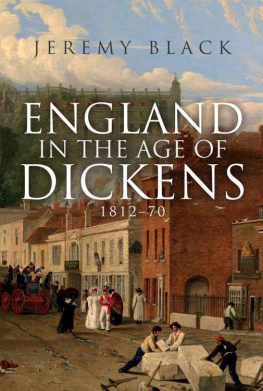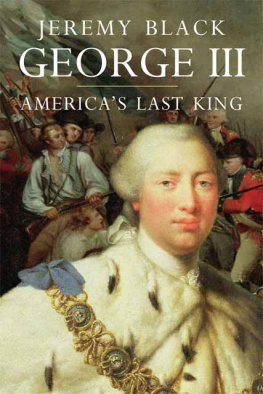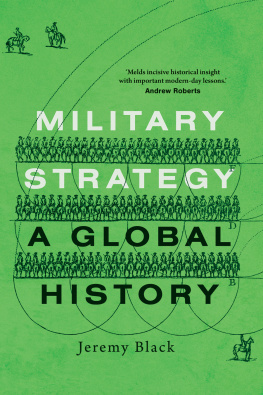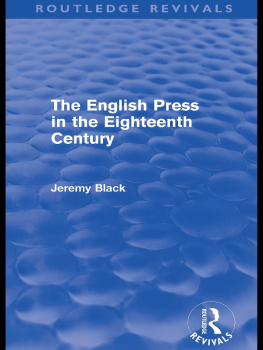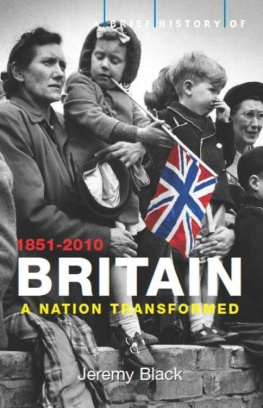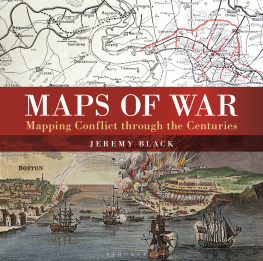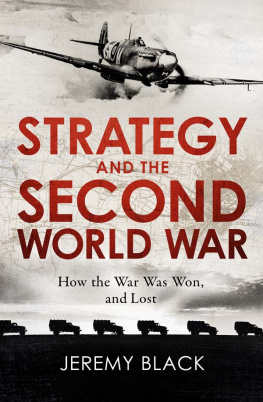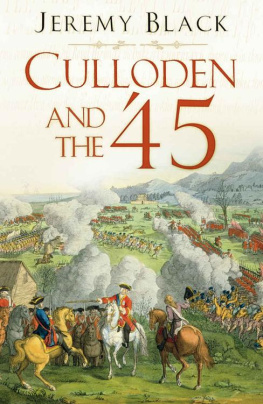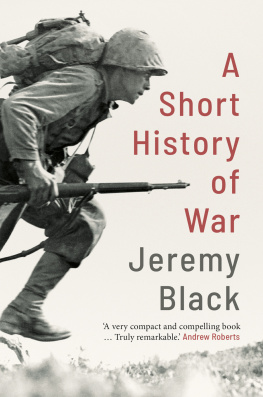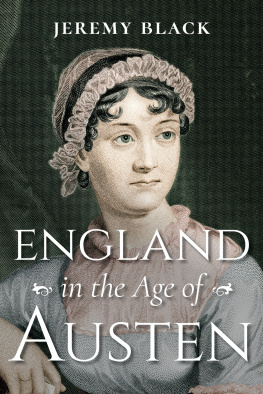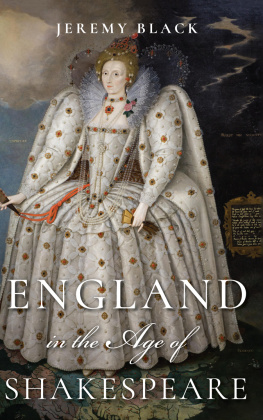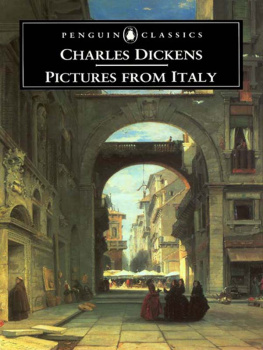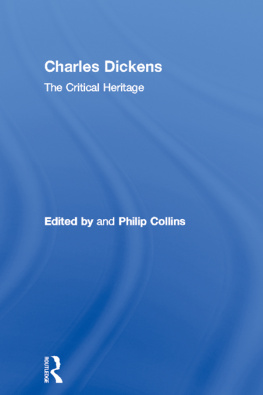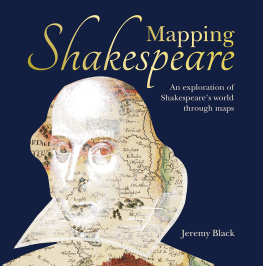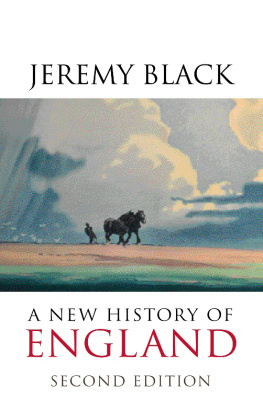Jeremy Black - England in the Age of Dickens: 1812-70
Here you can read online Jeremy Black - England in the Age of Dickens: 1812-70 full text of the book (entire story) in english for free. Download pdf and epub, get meaning, cover and reviews about this ebook. year: 2021, publisher: Amberley Publishing, genre: Non-fiction. Description of the work, (preface) as well as reviews are available. Best literature library LitArk.com created for fans of good reading and offers a wide selection of genres:
Romance novel
Science fiction
Adventure
Detective
Science
History
Home and family
Prose
Art
Politics
Computer
Non-fiction
Religion
Business
Children
Humor
Choose a favorite category and find really read worthwhile books. Enjoy immersion in the world of imagination, feel the emotions of the characters or learn something new for yourself, make an fascinating discovery.
- Book:England in the Age of Dickens: 1812-70
- Author:
- Publisher:Amberley Publishing
- Genre:
- Year:2021
- Rating:5 / 5
- Favourites:Add to favourites
- Your mark:
- 100
- 1
- 2
- 3
- 4
- 5
England in the Age of Dickens: 1812-70: summary, description and annotation
We offer to read an annotation, description, summary or preface (depends on what the author of the book "England in the Age of Dickens: 1812-70" wrote himself). If you haven't found the necessary information about the book — write in the comments, we will try to find it.
England in the Age of Dickens: 1812-70 — read online for free the complete book (whole text) full work
Below is the text of the book, divided by pages. System saving the place of the last page read, allows you to conveniently read the book "England in the Age of Dickens: 1812-70" online for free, without having to search again every time where you left off. Put a bookmark, and you can go to the page where you finished reading at any time.
Font size:
Interval:
Bookmark:


For
Richard Humphreys
First published 2021
Amberley Publishing
The Hill, Stroud
Gloucestershire, GL5 4EP
www.amberley-books.com
Copyright Jeremy Black, 2021
The right of Jeremy Black to be identified as the Author of this work has been asserted in accordance with the Copyright, Designs and Patents Act 1988.
ISBN 9781398101692 (HARDBACK)
ISBN 9781398101708 (eBOOK)
All rights reserved. No part of this book may be reprinted or reproduced or utilised in any form or by any electronic, mechanical or other means, now known or hereafter invented, including photocopying and recording, or in any information storage or retrieval system, without the permission in writing from the Publishers.
British Library Cataloguing in Publication Data.
A catalogue record for this book is available from the British Library.
1 2 3 4 5 6 7 8 9 10
Typesetting by SJmagic DESIGN SERVICES, India.
Printed in the UK.
CONTENTS
PREFACE
To many, Dickens is the chronicler of Victorian England, and notably of Victorian London. Understandably so. Largely based in the capital, Dickens produced amateur dramatics for the queen, and knew leading lights of the reign, including three prime ministers: Benjamin Disraeli, William Gladstone and, most of all, Lord John Russell, a key political figure from the 1830s to the 1860s and the last with considerable mutual sympathy.
Yet, Dickens (181270), who was seven years younger than the queen, died with thirty-one years of the reign (18371901) still to go. Moreover, most of his formative years were spent in earlier reigns: those of George IV (as king, 182030, rather than Prince Regent), and of William IV (18307). Although it might seem hard to credit, Dickens life overlapped with that of Jane Austen (17751816), and had hers not been so cruelly cut short by illness, the overlap would have been longer. For that matter, there were overlaps with the writers of Romanticism, notably Robert Southey and William Wordsworth, who were poets laureate from 1813 to 1843 and 1843 to 1850 respectively.
So placing Dickens is less easy than it might appear. He travelled extensively by train and crossed the Atlantic to the United States by steamer. Yet, his life was distant from such late Victorian innovations as the bicycle, the motor car, the telephone, alternating current for electricity, and the cinema. Indeed, the world he depicted appeared somewhat dated in that backdrop, and very much was so.
The context for Dickens life is that of the early nineteenth century. Moulded by it, he was part of the reaction to its conditions and values; and thus a framer of the Victorian age, rather than its product. This is even more the case if his novels are considered, for, in his last years, Dickens largely abandoned the format in order to focus on his public readings. In November 1865, Our Mutual Friend , his last complete novel, was published. The readings were more lucrative, both in terms of the money earned and with regard to the important validation offered Dickens by the applauding audience. Dickens returned to novels at the close, with his atmospheric, but unfinished, Mystery of Edwin Drood ; but that was an echo of an earlier career.
Moreover, although Our Mutual Friend begins with the words In these times of ours, some of his novels, and not only the two historical ones A Tale of Two Cities and Barnaby Rudge were not contemporaneous, but, instead, set in earlier periods. Thus, the action of Great Expectations can be dated to 180726, while Little Dorrit was set when there were no railways: Arthur Clennam comes from Dover to London by coach, and Tip Dorrit from London to Liverpool by boat, rather than train, while, in the introduction, Marshalsea Prison is referred to thirty years ago, with the addition, It remained there some years afterwards; but it is gone now.
In many respects, Dickens was most comfortable with these earlier days, both in describing reality and in handling the imagination. Thus, he handles travel by coach with a better sensitivity to events and moods than travel by train. Instead, the train is described as an imposition on the landscape.
There are excellent biographies of Dickens, and I recommend in particular that by Claire Tomalin, while Peter Ackroyds throws brilliant light on Dickens working methods. This is not such a work. Instead, following on from similar books on Shakespeare and Austen, I consider the backdrop of his age, both in terms of what happened and by reference to his novels. This backdrop not only provided him with the experiences that he turned into gripping copy, but also offered his readers and listeners the experience to appreciate this most dramatic of novelists. He also wrote plays, but they had less success, and only deserve revival as curiosities.
Dickens might appear to be describing and conjuring up a world far distant from that of the present day, but there is much in his work that directly speaks to the latter, not least because he focused on London, unlike Thomas Hardy who concentrated on the rural world and hated modernity. Dickens writes of the pressurised nature of modern urban life, the strains of modernisation especially in rapidly expanding cities and disturbing aspects of social vulnerability, and they are all very contemporary. The current focus on identity through gender, race and sexuality may appear to have fewer echoes in his work, but Dickens concerns with capital, income, social opportunity, and class are more pertinent on a global scale. So also with his view that morality was in large part more significant than formal structures, a view made more relevant by modern distortions of language such that many democracies, for example, are not democratic. Self-validation by the group, a classic feature of modern society, and one facilitated by social media, can be considered with reference to Dickens comment in Nicholas Nickleby :
cases of injustice, and oppression, and tyranny, and the most extravagant bigotry, are in constant occurrence among us every day. It is the custom to trumpet forth much wonder and astonishment at the chief actors therein setting at defiance so completely the opinion of the world; but there is no greater fallacy; it is precisely because they do consult the opinion of their own little world that such things take place at all, and strike the great world dumb with amazement.I have benefited from the wealth of scholarship available and from the comments on earlier drafts by George Boyce, Duncan Campbell, Bruce Coleman, Eileen Cox, Grayson Ditchfield, Bill Gibson, Will Hay, Peter Spear and Philip Waller. None is responsible for any errors that remain, but all have helped with their comments, and I would like to take this opportunity to record my sadness at the death of George, a friend of over three decades standing. It is a great pleasure to dedicate this book to Richard Humphreys, a long-time friend who helps provide the reassurance of sensible advice.
LONDON: THE STAGE OF ALL
Tiers upon tiers of vessels, scores of masts, labyrinths of tackle, idle sails, splashing oars, gliding row-boats, lumbering barges, sunken piles, with ugly lodgings for the water-rat within their mud-discoloured nooks; church steeples, warehouses, house-roofs, arches, bridges, men and women, children, casks, cranes, boxes, horses, coaches, idlers, and hard-labourers: there they were, all jumbled up together, any summer morning.Born in Kent, and not in Londons Kent suburbs, Dickens was a Londoner only by adoption. Yet, the city fixed his novels as a presence thanks to the strong and lasting grip of his experience there from childhood. These included the travails of young labour, in his case in a factory that made blacking, a paste dye for shoes and stoves. There was also his adult vocation as a busy journalist and editor, his life in a range of rented property, as well as his active commitment to social life in the city, notably that of restaurants and theatres.
Next pageFont size:
Interval:
Bookmark:
Similar books «England in the Age of Dickens: 1812-70»
Look at similar books to England in the Age of Dickens: 1812-70. We have selected literature similar in name and meaning in the hope of providing readers with more options to find new, interesting, not yet read works.
Discussion, reviews of the book England in the Age of Dickens: 1812-70 and just readers' own opinions. Leave your comments, write what you think about the work, its meaning or the main characters. Specify what exactly you liked and what you didn't like, and why you think so.

